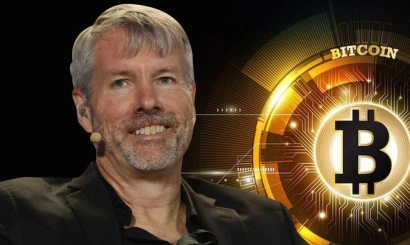Zero Knowledge. How ZK technology created a billion-dollar niche in the crypto market
Venture capitalists have invested over $1 billion in cryptocurrency startups using ZK-proofs technology
We tell you how the complex cryptographic concept found application in the crypto-sphere, and why startups using it are attracting millions of dollars from investors
Since 2019, cryptocurrency-oriented venture capitalists have been supporting startups that develop technical solutions somehow related to zero-knowledge proofs technology (zero-knowledge proofs or ZK-proofs, ZK). It is largely thanks to the crypto sphere that the complex cryptographic concept has become a successful marketing tool for startups creating tools to optimize Ethereum and other networks.
Matter Labs has raised nearly $0.5 billion from foundations to develop its zkSync solution, and the launch of Polygon's zkEVM software environment by Polygon Labs with similar funding has been a highlight in the cryptocurrency community. Projects like Starknet or Scroll are worth billions of dollars, and they all use zk-proofs technology in one way or another.
How the zkSync project is making Ethereum faster and when it will release its token
In 1985, researchers Shafi Goldwasser, Silvio Micali, and Charles Rakoff published a paper called Knowledge Complexity of Interactive Proof-Systems. This was the first theoretical formulation of zero-disclosure proof technology.
To greatly simplify, this cryptographic technique allows you to prove that you know something without revealing exactly what you know. In the context of cryptocurrencies, this can be illustrated, for example, as verifying that a user has funds to transfer, without revealing to other participants in the network who the user is, or how much money they have in their wallet.
Complex calculations
Such proofs are technically complicated and computationally intensive, so the technology didn't see the light of day for a long time and was discussed mostly in academic circles. But starting in 2010, researchers realized that ZK-proofs can be implemented on modern computers.
With the advent of faster computers and more funding for cryptography research, scientists, including Georgetown University associate professor Justin Thaler, have described how to generate zero-disclosure proofs on real computing machines. Thaler is also a researcher at a16z crypto, a division of venture capital firm Andreessen Horowitz, which manages four funds to invest in blockchain projects totaling more than $7 billion.
The emergence and proliferation of cloud computing has also given further impetus to the technology's adoption. Laptops or smartphones are slower than the combined power of Amazon's servers, but with ZK-proofs, one computer can confirm that multiple computers have executed the program correctly.
When Bitcoin emerged in 2009, there was early discussion about reducing the computational burden on blockchain and privacy in the blockchain. Two problems emerged - the blockchain's relatively slow performance due to its decentralized structure and its transparency, allowing analysts to identify and track wallets with ties to real users.
In 2013, a group of scientists, based on improvements in the implementation of ZK-proofs technology, laid out proposals for a Zerocoin solution that would help make Bitcoin transactions completely anonymous. Teaming up with Zuko Wilcox, a computer scientist, and self-proclaimed "cipherpunk" in the bottom line, they launched the cryptocurrency Zcash (ZEC). It was probably the first implementation of ZK-proofs technology on a large scale.
Accelerate Ethereum
The point of technology in the context of cryptocurrencies is not just about privacy. When Ethereum grew in popularity with the spread of blockchain technology, more and more developers created more complex applications to run on it, and they, in turn, needed ways to speed up their applications. Ethereum, to simplify things a bit, is essentially a decentralized computer that runs relatively slowly.
Ethereum co-founder Vitalik Buterin has repeatedly said that it is solutions using ZK-proofs, in particular, the so-called ZK-rollups (ZK-rollups) will help increase network throughput, and in the future will be integrated into its software code.
Zero-disclosure proofs allow you to prove something true without verifying each claim. Using this property, solutions such as zkSync "roll up," that is, compile and process transactions outside of the main Ethereum blockchain and prove that they have done so accurately. Even then, the main blockchain only verifies this proof, which takes significantly less time compared to verify each transaction in the usual way.
Dozens of startups are developing a flood of solutions using ZK, including the same zkSync, Aztec, Scroll, Starknet, and others. They compete with another group of Ethereum scaling solutions, collectively called Optimistic rollups, the best known of which are Optimism and Arbitrum projects. The companies have formed an entire industry within the crypto market and have collectively attracted several billion dollars from investors.
On June 8, the Taiko project announced it had raised $22 million to develop its own zkEVM. It is a solution that Vitalik Buterin called essential for scaling the Ethereum blockchain.
The zkEVM (Zero-Knowledge Ethereum Virtual Machine) is a development that combines Ethereum capabilities with the concept of zero-knowledge proofs. It was the company behind the zkSync solution that Matter Labs first deployed its version of zkEVM to the public along with the launch of the zkSync Era network.
The zkEVM solution is primarily a tool for scaling Ethereum, but it also includes privacy-enhancing features. It combines the benefits of ZK-proof technology and compatibility with the Ethereum Virtual Machine (EVM) application environment while enabling faster, cheaper, yet more private transactions.
Simply put, zkEVM allows developers to create second-tier solutions such as ZK rollups. This helps reduce congestion and bandwidth limitations on the core Ethereum network, resulting in faster and cheaper transfers. The approach of projects like zkSync allows for fast and low-cost Ethereum transactions while keeping data secure and confidential.
Slow network performance and high fees are stumbling blocks for the mass adoption of blockchain technology, so it makes sense for investors to support startups that offer efficient solutions.
- Binance lawyers find a way to remove the SEC head from a legal case
- Binance.US will close trading of 40 currency pairs and OTC trading at once
- Trading volume on the largest DeFi-platforms increased by 180% in two days
- Katie Wood's company ARK Invest has bought Coinbase stock worth $21 million.
- Large market makers withdrew from Coinbase and Binance almost $70 million in assets
- How the outcome of the Ripple case will affect the crypto market after new lawsuits from the SEC
- The capital of the heads of Binance and Coinbase decreased by $1.6 billion in two days






